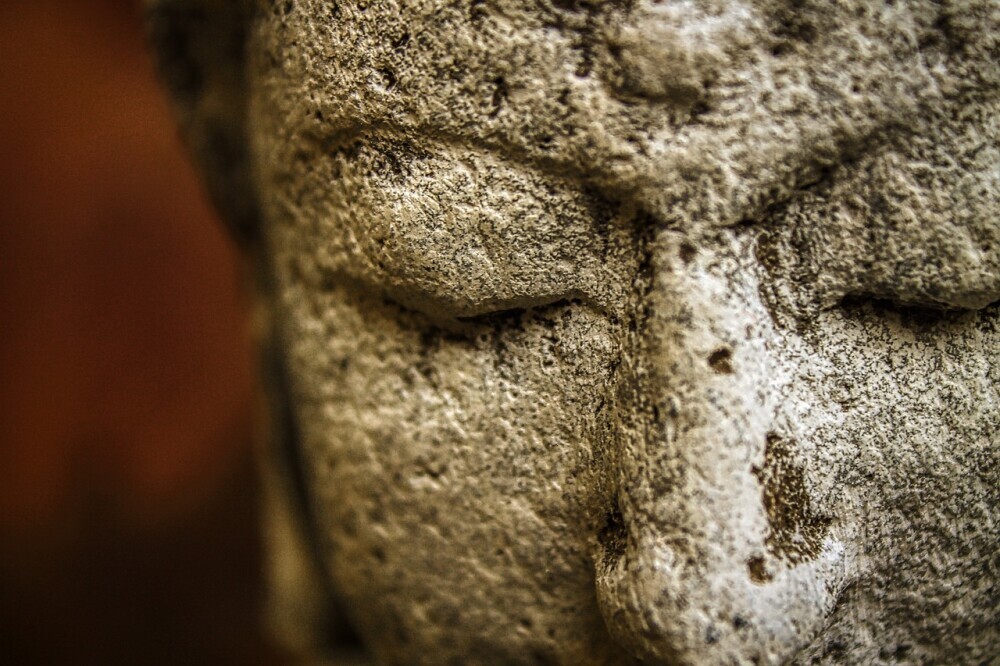Don’t Panic
Giving way to panic has proven helpful in a crisis—said no one ever. Yet panic is the natural response of those who fixate on their circumstances rather than on Christ. Didn’t Peter prove this when walking on water? So long as he kept his eyes on Jesus, he made forward progress, but the minute he turned his gaze to the wind and the waves, he began to sink. Peter panicked (Matt. 14:22–30).
We often do the same thing when the wind and the waves of loneliness threaten to sink us. If we aren’t fixed on Jesus—and if we don’t view life through a biblical lens—we’re going to try to fight those waves ourselves, and eventually we will go down. Panicked swimmers often drown.
Lie: Loneliness Is Pure Evil
Heightening the waves of loneliness is this myth: “Loneliness is a result of something bad, and therefore no one should have to experience it.”1 If we believe that, we’re going to use everything we’ve got to fight against it. We will have no peace, no joy, and no delight in the Lord. And we will never find our way out of the water.
Let’s take a closer look at that myth. Is loneliness always the result of something bad? On one hand, God did say that it’s not good for man to be alone (Gen. 2:18). So in that sense, yes, aloneness—and its accompanying loneliness—is not good. Yet we can’t escape the fact that it was God himself who made Adam and then put him in the garden all alone. Sin hadn’t even entered the world yet. In other words, Adam’s initial aloneness was God’s doing, and God did it in order to solve the aloneness by providing Adam with companionship. God went on to provide a wife for Adam; however, “he never designed marriage to fulfill the incompleteness or eradicate the aloneness. Rather, it more fully reveals our need for our ultimate destiny—to be in union with him.”2 So from the beginning man’s aloneness wasn’t good per se, but that wasn’t the end of the story. So there’s no need to panic. The emptiness that so often accompanies aloneness—loneliness—is meant to be filled, and most fully by Christ himself.
Finding God in My Loneliness
Lydia Brownback
Lydia Brownback offers biblical encouragement for women to help them see how God can redeem seasons of loneliness and draw them to the only true and lasting remedy: union with Jesus.
Lie: I Shouldn’t Have to Be Alone
So loneliness isn’t all bad after all. And since that’s the case, we can’t really claim that no one should have to experience it. To the contrary, since God designed us to yearn for connectedness, it stands to reason that we must experience loneliness. Apart from that, we’d be prone in our natural selfishness to isolate ourselves so we can have everything in life our own way, never having to bend to the wishes and needs of others. Without a biblical perspective, we will see loneliness as utterly bad, as something merely to avoid rather than fill. And we will panic.
The voice of panic says,
I’m the only one who’s home alone tonight.
He’s less than ideal, but if I don’t marry him, I might never have another chance.
Being alone is going to ruin my health.
If God were truly good, he wouldn’t leave me in this lonely situation.
God says,
Be strong and courageous. Do not be frightened, and do not be dismayed, for the Lord your God is with you wherever you go. (Josh. 1:9) I will never leave you nor forsake you. (Heb. 13:5) And Jesus said, Behold, I am with you always, to the end of the age. (Matt. 28:20)
And Jesus said,
Behold, I am with you always, to the end of the age. (Matt. 28:20)
What happens when we panic? Our heart races; we can feel the blood pound. A sense of desperation rises up in our throat—we can almost taste it. And then our mind scrambles to latch on to a way out, and at this point, any way will do. If you’re like me, those moments occur most frequently after sundown. Sometimes I dread the night. How will I make it through another one all alone? And why must I? That’s what it comes down to, isn’t it? Panic so easily morphs into rebellion. Once that happens, we’ve turned away from God rather than toward him. We reject God’s comfort and turn to whatever escape is nearby—television, Facebook, food, alcohol, sleep. We don’t want comfort on God’s terms, so we say, “Thanks, but no thanks.” Yet if we insist on life on our terms, we will only entrench our loneliness.
Lie: I Can Fix This Myself
Sometimes our escape methods are significantly more sophisticated. We don’t settle for that simple evening escape; we strategize a radical life-turnaround. And indeed there are times when undertaking a significant change might be a wise approach. God’s blessings often come to us by means of our own activity, and a pressing weight of loneliness might be the very thing God is using to redirect our path. But if the only available options for change are biblically questionable or if godly friends express reservations about our plans, then we are wise to reconsider. And even when it’s all systems go, there is no guarantee that our loneliness will be remedied as a result. The bottom line is, we can’t fix our loneliness; we haven’t been created with that capability. We can alter our aloneness, but not our loneliness.
The Light of Truth
So what’s our goal? That’s a good question to ask ourselves if loneliness is compelling us to consider a major life change. If we are believing the lies—loneliness is bad, I shouldn’t have to be lonely, and I can fix my loneliness—then those lies are going to drive us. That relocation we’re considering might open all kinds of new doors, but it won’t necessarily solve loneliness. Signing on with Match.com might result in a relationship, but there’s no guarantee it will remedy loneliness. The church across town has a lot more people, but leaving a small church for a larger one can backfire as a loneliness remedy. On the other hand, if we’re lonely because we have no Christian fellowship or Bible-believing church to attend, then making a change is a wise plan.
So goal assessment, done prayerfully through time in God’s word, is a good way to begin when it comes to quelling panic.
The emptiness that so often accompanies aloneness—loneliness—is meant to be filled, and most fully by Christ himself.
If we invite the Lord into our alone time and seasons of loneliness, we might be pleasantly surprised to discover that we actually prefer some evenings all to ourselves. How freeing to recognize that turning off the television and letting in the silence isn’t the approach of death.
Conversely, we might discover that a God-given way out of our aloneness has been right in front of us all along, but we were unwilling to see it. Paul shows us one of those ways:
For by the grace given to me I say to everyone among you not to think of himself more highly than he ought to think. . . . For as in one body we have many members, and the members do not all have the same function, so we, though many, are one body in Christ, and individually members one of another. Having gifts that differ according to the grace given to us, let us use them. (Rom. 12:3–6)
And so does John:
That which we have seen and heard we proclaim also to you, so that you too may have fellowship with us; and indeed our fellowship is with the Father and with his Son Jesus Christ. . . . God is light, and in him is no darkness at all. If we say we have fellowship with him while we walk in darkness, we lie and do not practice the truth. But if we walk in the light, as he is in the light, we have fellowship with one another. (1 John 1:3, 5–7)
Married or single, young or old, rich or poor—we cannot fix our loneliness. But we can put it to use. The real question is, are we willing? Willingness is possible only by replacing the lies we’ve believed with the truth. Elisabeth Elliot writes:
When the surrender of ourselves seems too much to ask, it is first of all because our thoughts of God Himself are paltry. . . . In our blindness we approach Him with suspicious reserve. We ask how much of our fun He intends to spoil, how much He will demand from us, how high is the price we must pay before He is placated. If we had the least notion of His lovingkindness and tender mercy, His fatherly care for His poor children, His generosity, His beautiful plans for us; if we knew how patiently He waits for our turning to Him, how gently He means to lead us to green pastures and still waters, how carefully He is preparing a place for us, how ceaselessly He is ordering and ordaining and engineering His Master Plan for our good—if we had any inkling of all this, could we be reluctant to let go of . . . whatever we clutch so fiercely in our sweaty little hands?3
Lies about loneliness are dislodged only by truth about God. He has not left us to solve our plight on our own. Nothing has slipped through the cracks. We are not stuck in Plan B, no matter what brought us to the place we’re in today. If we are alone—if we are lonely—the ache of it is God calling us to deeper fellowship with him through his Son.
Peter began sinking in the wind and the waves because he took his eyes off Jesus. Once that happened, he could see no way out, no rescue. But rather than fight harder to save himself, he cried out, “Lord, save me.” And immediately—with no delay, no conditions—Jesus reached out and pulled Peter into the boat. Then he asked Peter a question: “O you of little faith, why did you doubt?” (Matt. 14:30–31).
Notes:
- Christopher West, cited in Gary Barnes and Darrell L. Bock, “5 Myths and Truths in Loneliness” (August 21, 2015), accessed August 24, 2015, http://www.thegospelcoalition.org/article/5-myths-and-truths-in -loneliness.
- Elisabeth Elliot, The Path of Loneliness: Finding Your Way through the Wilderness to God (Grand Rapids, MI: Revell, 1998, 2001), 123.
This article is adapted from Finding God in My Loneliness by Lydia Brownback.

Lydia Brownback (MAR, Westminster Theological Seminary) is the author of several books in addition to the Flourish Bible Study series, including the On-the-Go Devotionals for women; Finding God in My Loneliness; and Sing a New Song. She is a regular speaker at conferences and events and is passionate about teaching God's word.
Related Articles
Feeling Alone in a Crowded Congregation
October 03, 2023We are social beings, and human connection is essential for our brain functioning, physical health, and emotional well-being. Loneliness is the unsurprising symptom of an individualistic society.
Why Do We Feel Lonely at Church?
July 16, 2024In this video, Jeremy Linneman takes time to explain why the mounting problem of loneliness matters and offers suggestions for how we might build spiritual communities for ourselves.
Dear Pastor . . . in a Lonely World, Cultivating Community Is Worth It
March 03, 2024Of all the many things we do, cultivating spiritual community in a lonely world ranks among the most difficult, time-consuming, and personally demanding efforts.
The Vicious Cycle of Idolatry and Loneliness
May 17, 2017Escape from difficult circumstances can easily turn into idolatry and unhealthy coping mechanisms. But God always provides a way out.
Crossway is a not-for-profit Christian ministry that exists solely for the purpose of proclaiming the gospel through publishing gospel-centered, Bible-centered content. Learn more or donate today at crossway.org/about.











 English (US) ·
English (US) ·